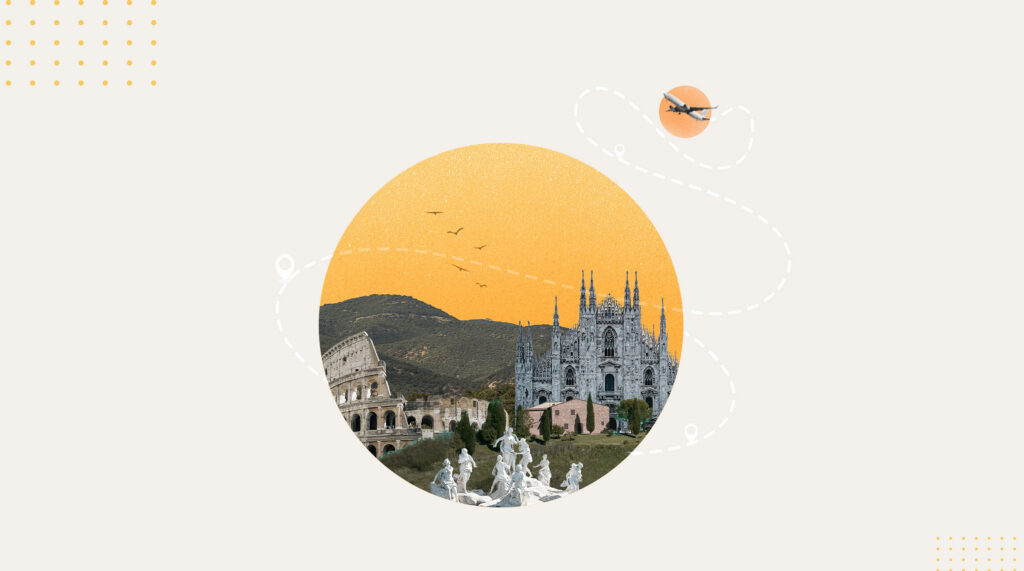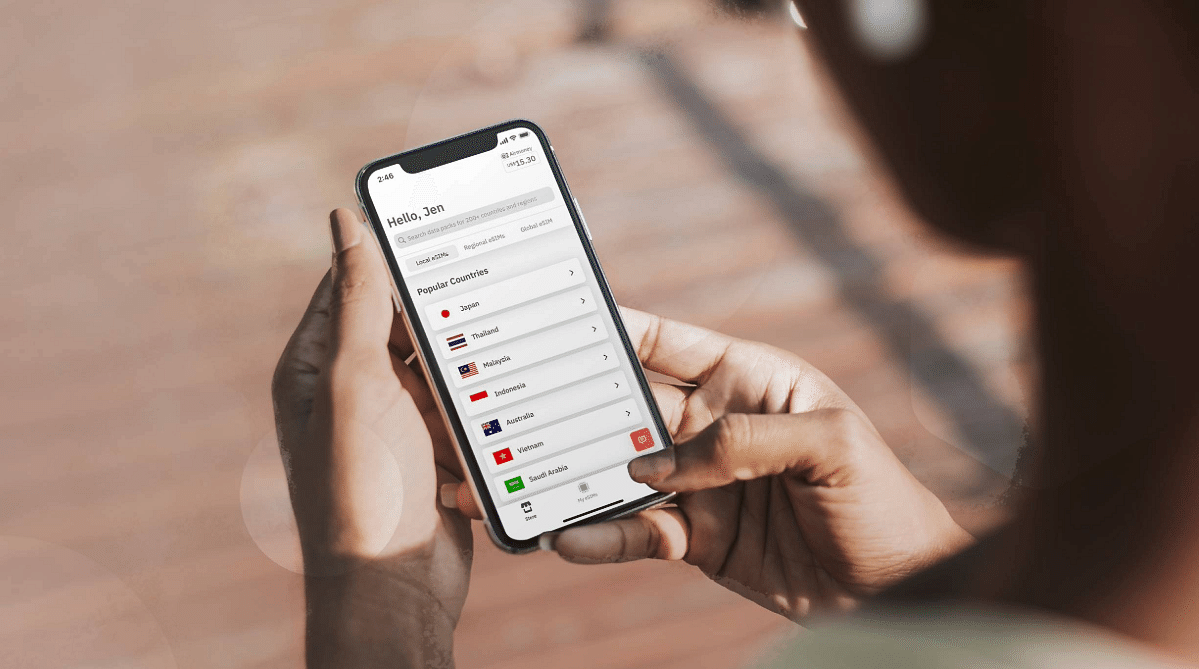No products in the cart.
Uncategorized
10 Days in Italy: The Ultimate Itinerary
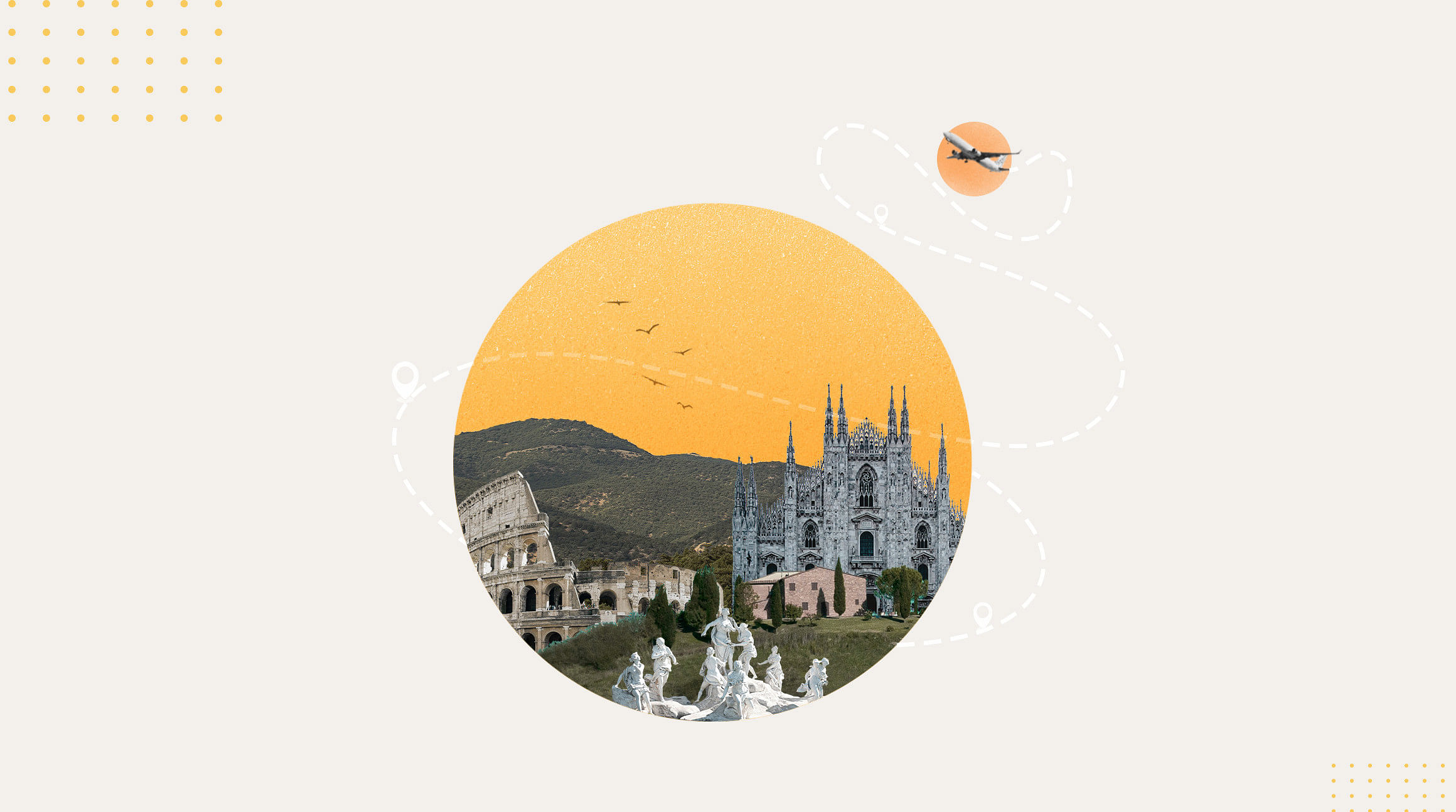
Planning a trip to Italy? Ten days is a great place to start! It gives you just enough time to visit some of Italy’s most incredible sites, including Rome, Florence, Tuscany, and Venice. With plenty of opportunities to experience Italy’s rich cultural heritage, fascinating history, and delectable cuisine, there’s something for every type of traveler. Ready to dive in? Here’s the ultimate itinerary for ten days in Italy.
Related: Italy Travel Guide: Everything You Need To Know
The Best Time to Visit Italy
Italy is enjoyable any time of year, but June through August and November through March are in-season for tourists. The best times to visit Italy are during the off-season months of April through May and September to October, when attractions are less crowded, and the weather is moderate and comfortable.
The Cost of Traveling in Italy
Beyond the cost of traveling to Italy, travel expenses will fluctuate depending on the exchange rate. If you’re traveling from a country that doesn’t use the euro, plan on exchanging your money at home for a more favorable exchange rate. Many travel experts advise having between €50 and €180 per person per day to cover food, transportation, entertainment, and souvenirs.
Some cities are more challenging to drive in than others, especially the more populated ones. If you’re unfamiliar with the driving customs in Italy, we recommend using the train to move from city to city and public transportation within the cities to explore. These modes are far less expensive than renting a vehicle.
10-Day Italy Itinerary
With an abundance of history, culture, and architecture, you cannot possibly see everything that Italy has to offer in 10 days, but this itinerary is a great start whether you are on your first trip or have returned for another vacation. Check out our curated travel plan for the best 10-day Italy itinerary.
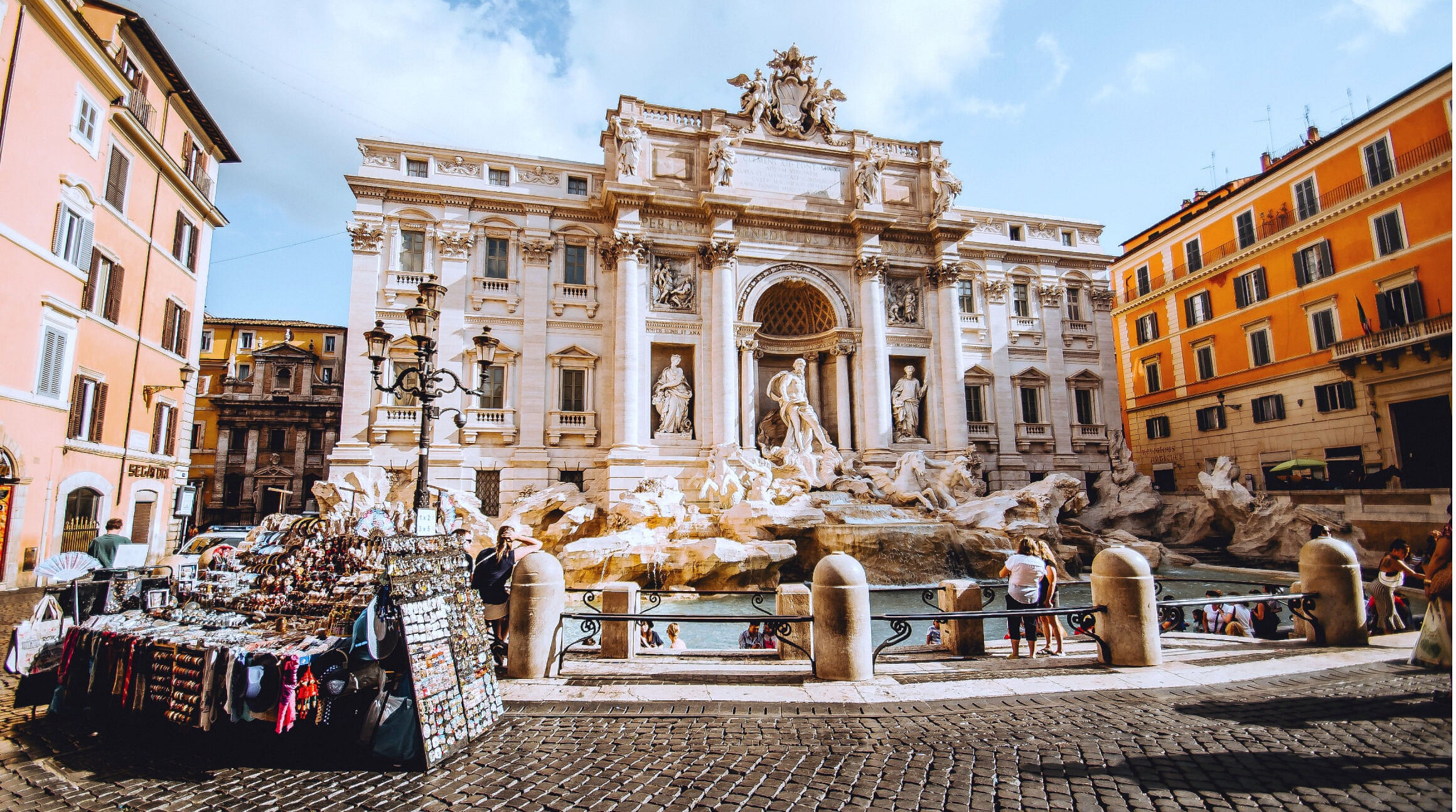 Unsplash
Unsplash
Day 1: Welcome to Rome
Starting your vacation by flying into a larger city is a good tactic. There is so much to see in Rome, and you can check several things off your must-see list right away. Take a taxi or train to the Termini Station in the center of Rome, and book accommodations nearby to enjoy the easily walkable area. If you’re experiencing jet lag or are tired from your travels, do your best to stay on schedule to acclimate and enjoy the rest of your trip.
Begin your adventure by visiting the famous Trevi Fountain. Lore states that if you throw a coin into the fountain, you will return to Rome one day! Continue walking to the Spanish Steps for a photo opportunity à la Audrey Hepburn and Gregory Peck in the movie “Roman Holiday” and take the opportunity to sit down and people-watch.
Next, set your sights on the Colosseum. Book a guided tour ahead of time so you can learn everything about this amazing piece of history. If you visit during the summer, opt for the sunset tour to take advantage of the extended hours and beat the heat.
Day 2: Continue Exploring Rome
The Vatican is a must-see for any visitor. If you’d like to attend a papal Mass, get tickets right away, as they go quickly. While there, be sure to visit the Holy See and go on a dome climb. There are 551 steps to the top of the Basilica; however, you can climb up 231 steps to the cupola, where the best views are available. Tour the Vatican Museum to learn more about its history and see incredible works of art, including the frescoed ceiling of the Sistine Chapel.
After an eventful morning, stop for a delicious lunch of world-renowned pasta (fun fact: there are 350 varieties!). When you’re satisfied, head back to your lodgings for a quick siesta.
Once you’re rested, continue the day by setting your sights on the Roman Forum’s ancient ruins. Stop at Capitoline Hill, which is one of the seven hills on which Rome was built, and learn about this religious and political center. From there, head to the Pantheon, known as the world’s largest unreinforced concrete dome. Cap the evening by walking to the Trastevere neighborhood, a bohemian area with trattorias and a lively atmosphere.
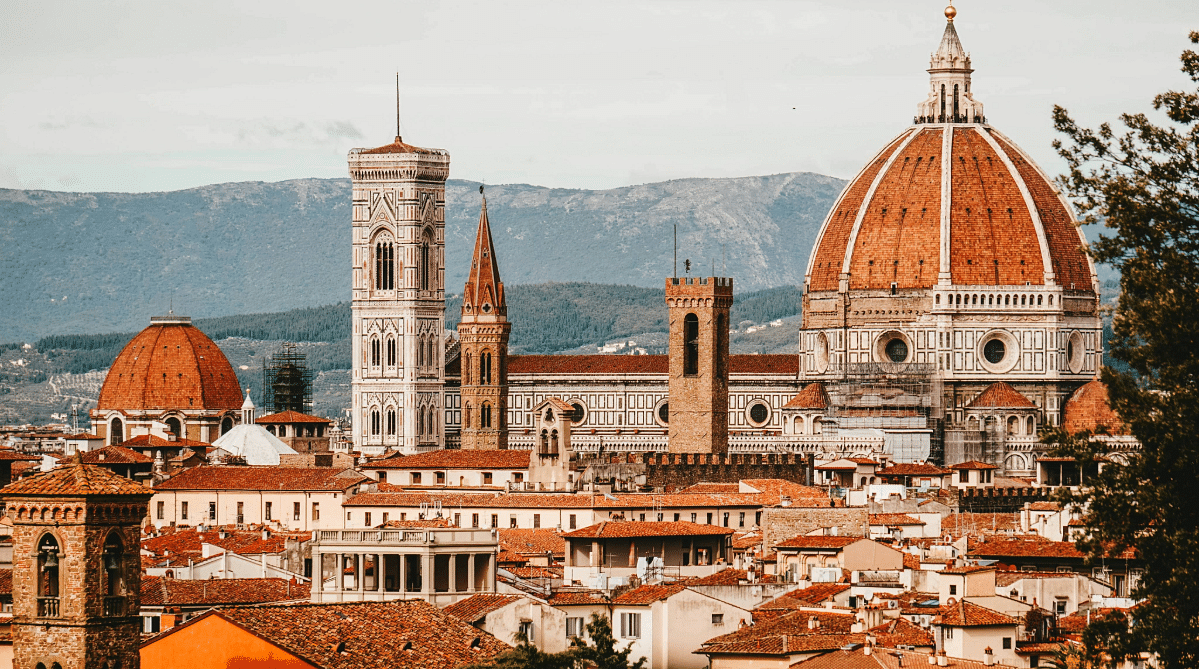 Unsplash
Unsplash
Day 3: Off to Florence
Put on your walking shoes as soon as you get off the train because Florence is a city made for strolling. It’s known as the Birthplace of the European Renaissance and has plenty of historical sites to explore. Stop for a cornetto (Italian croissant) and coffee before starting your journey at the Boboli Gardens. The gardens, created by the Medici, include fountains and caves as well as beautiful arts and artifacts, which can be found in the museum.
Your next stop is the Galleria dell’Accademia, where Michelangelo’s Statue of David is on display. You’ll marvel at the size of the sculpture. Get tickets in advance to ensure you get in and avoid the crowds.
Now it’s time for a lunch stop at the Mercato Centrale, a two-story marketplace where you can purchase takeaway or dine on the second floor. You’ll find fresh Italian food and coffee to refuel before going to the Cathedral of Santa Maria del Fiore (Il Duomo). This massive cathedral lies in the center of Florence. Purchase a ticket to climb to the top of the dome and gain access to the secret terraces for an unforgettable view.
Since Florence is the birthplace of gelato, you’ll need to make an obligatory stop for dessert. Take it to go, and enjoy a walk along Ponte Vecchio, once the only bridge crossing the Arno River. Shops are built into the bridge, where you can find souvenirs, jewelry, and trinkets.
If you have time left in your busy day, walk to the Uffizi Gallery to see Botticelli’s “Birth of Venus” and the Piazza della Signoria. The piazza is an outdoor art gallery surrounded by monuments, statues, and fountains that are all a sight to behold.
Pick up a delicious panini to eat on the go as you walk back to your hotel or catch the train to your next destination.
Related: The 20 Best Things To Do in Florence
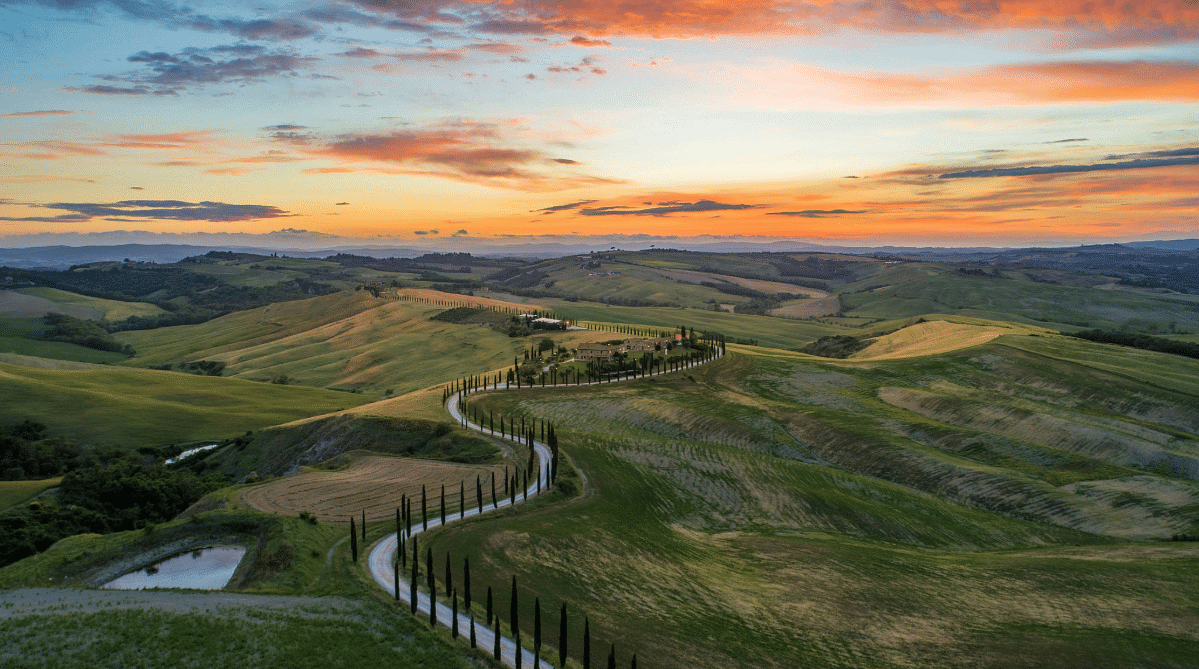 Unsplash
Unsplash
Day 4: Take a Tour of Tuscany
With only one day set aside to see the region of Tuscany beyond Florence, you should try something different. Experience the beauty of the countryside via a guided bicycle tour. While there are many bike tours available, a fun one to select combines a cooking class or a wine-tasting tour. Check the details of your itinerary, as operators will often transport you to and from the train station and have follow-vans to store your luggage during the ride.
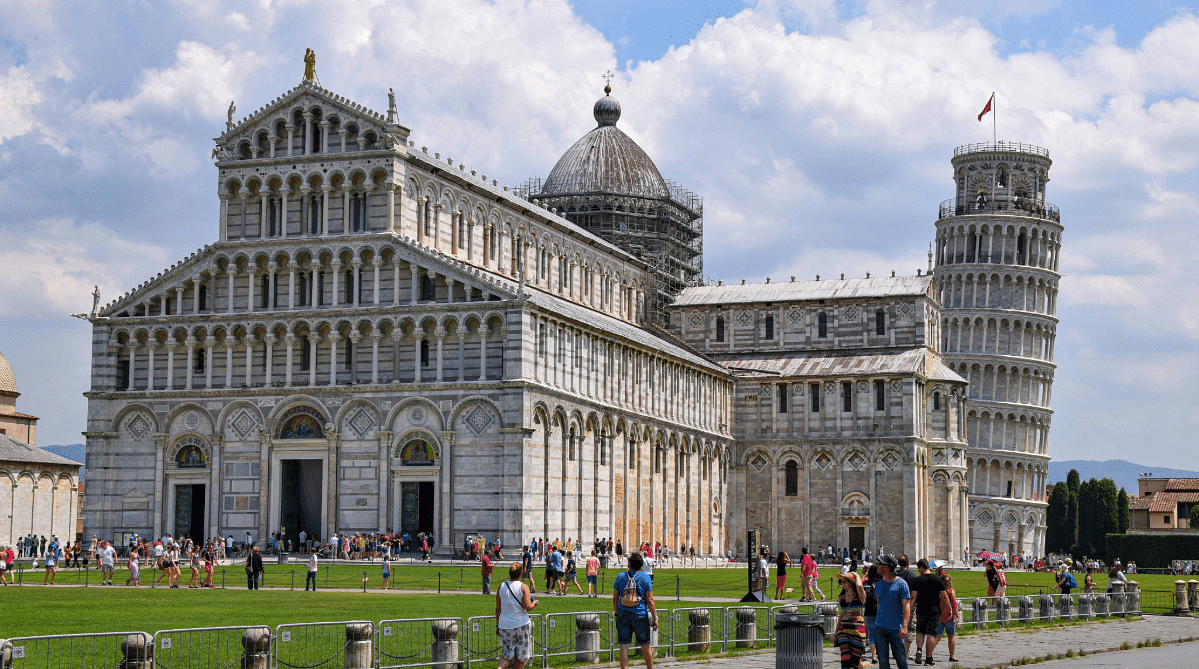 Unsplash
Unsplash
Day 5: Enjoy Pisa’s Sights
Pisa is best enjoyed as a day trip. Take the train first thing in the morning and plan to leave for your next destination in the early to late evening. That way, you’ll start the next day fully rested.
No visit to Pisa is complete without the requisite stop at the iconic Leaning Tower of Pisa. If the tower conditions permit, you can even climb to the top! Walk around the Piazza del Duomo, where the Tower is located, and go into the cathedral to learn about the history and architecture of the area.
Move on to the Palazzo della Carovana and the statue of Cosimo I de’ Medici. The piazza’s stunning Renaissance architecture begs to be photographed. From there, walk along the main street of Borgo Stretto to purchase souvenirs and sit down for a meal.
Next, cross the Mezzo Bridge on the Arno River to see the city from a different vantage point. It’s especially beautiful at sunset. Finally, stop at the Palazzo Blu art gallery before calling it a day.
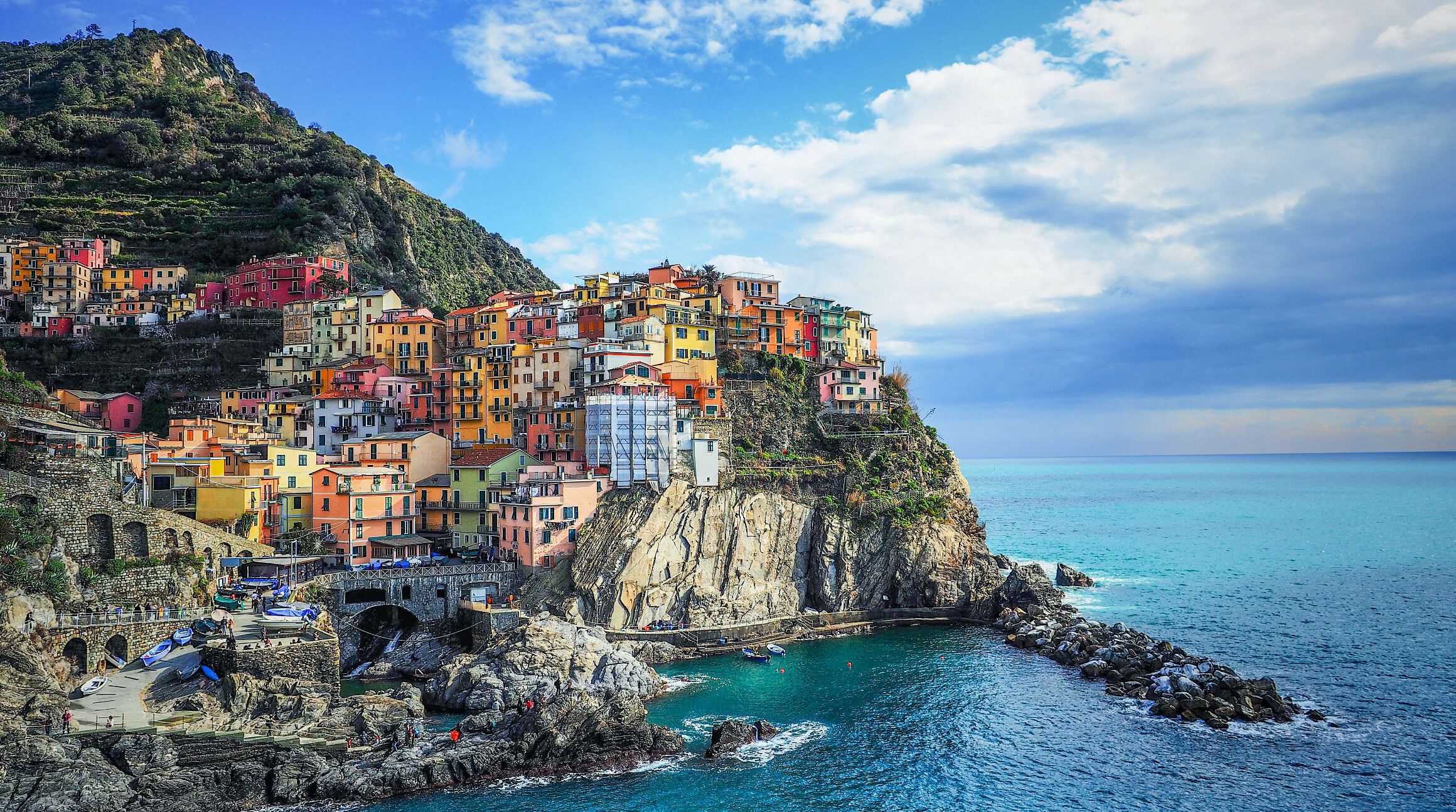 Unsplash
Unsplash
Day 6: Hike Through Cinque Terre
There is nothing quite like Cinque Terre, with its terraced villages and colorful homes. Take the train into the area the night before or first thing in the morning to get a fresh start. This picturesque national park is home to the five coastal villages of Riomaggiore, Manarola, Corniglia, Vernazza, and Monterosso.
Depending upon your interest and energy level at this point in the trip, you can hike between one or two villages and spend the day exploring them. Alternatively, take a ferry or train between villages to maximize your time. If you’re traveling during warmer months, bring your swimsuit for a dip in the water after hiking.
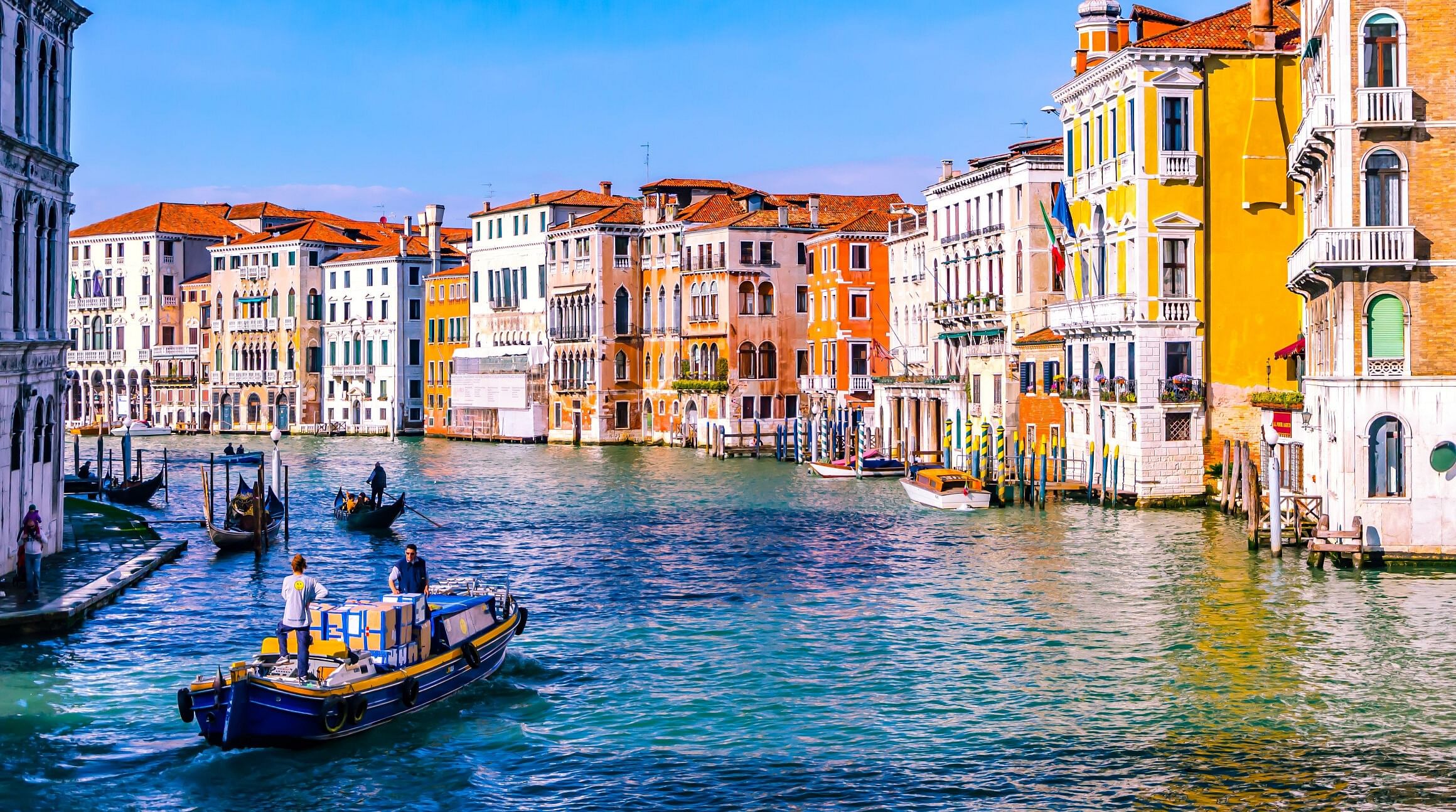 Unsplash
Unsplash
Day 7: Venice, Day 1
Venice is as captivating as it looks in the movies, which is why we recommend two days in this locale. Begin your day, as always, with breakfast. Walk to the Piazza San Marco, where many small eateries line the square. If the weather permits, sit outside and watch the pigeons and people pass by. From there, walk across the square to Basilica di San Marco, the Campanile, and Doge’s Palace for a packed morning.
Walk to the small Bridge of Sighs, where legend has it prisoners walked to meet their demise, sighing along the way. Make your way to two more bridges, the Rialto and the Accademia, for amazing views of the city and canals.
Spend the rest of your day wandering throughout the city, getting lost in the streets. Explore the little shops and finish the night with a meal at a local family-run trattoria.
Day 8: Venice, Day 2
Your second day in Venice should begin with trips to the islands of Murano and Burano. Murano is where the famed glass-blowing artisans produce their world-famous wares. It’s a good place to pick up a souvenir. The island of Burano is famous for its handmade lace and colorful houses along the water.
Once you’re back in Venice, take a sunset gondola ride before stopping for cichetti (Venetian tapas) at a neighborhood bacaro (wine bar). Spend the rest of the evening walking the streets and taking in the sights before turning in.
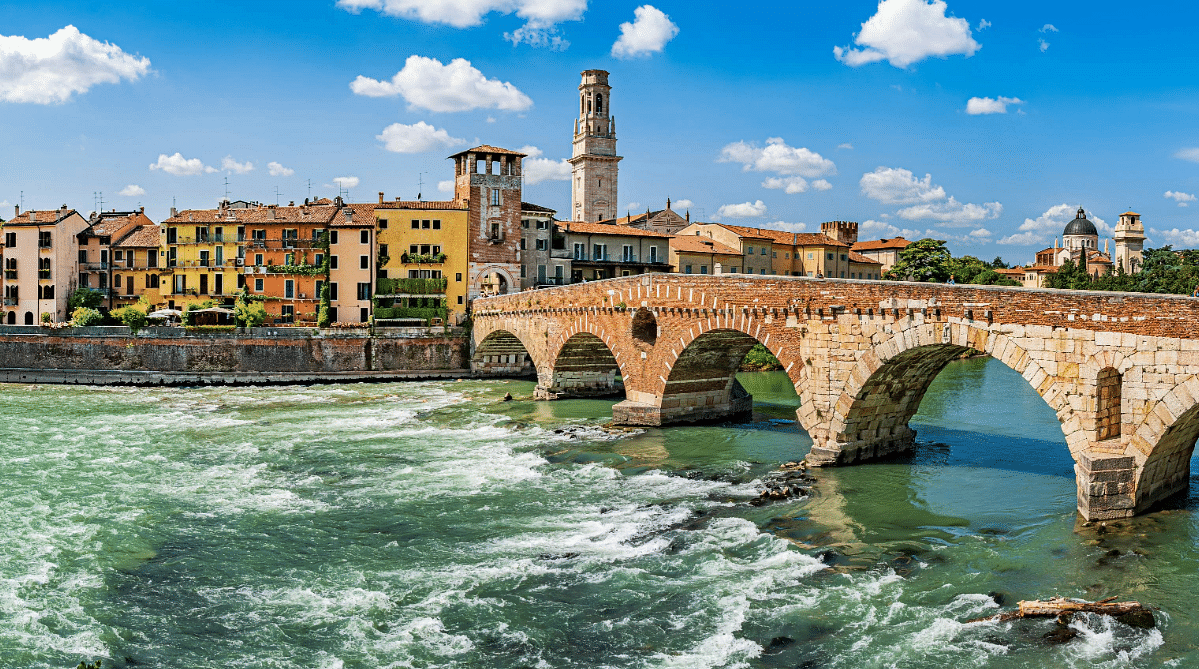 Unsplash
Unsplash
Day 9: Fair Verona
The city of Verona lies in northern Italy and is the famed setting for Shakespeare’s “Romeo and Juliet.” However, there are many more interesting things to see beyond the inspiration for the Bard’s play.
Begin the day with breakfast and coffee while you walk to the Verona Arena. This Colosseum is smaller than the one in Rome but equally impressive. If you have time at the end of the day, purchase tickets to return for an opera or play and experience the venue’s incredible acoustics firsthand.
From here, walk down Via Giuseppe Mazzini, the main street for window shopping and some must-have gelato. This walk will take you to the “House of Juliet,” where Juliet famously stood on the balcony. Although Romeo and Juliet were fictional characters, it’s still exciting to stand in the courtyard below.
Make your next stop in the Piazza delle Erbe for lunch. In the warmer months, sit on the piazza and soak in the architectural scenery.
Climb the 368 steps of the Torre dei Lamberti for a beautiful panoramic view of the city. Visit the Modern Art Gallery onsite when you’re done to see iconic paintings. Next, walk to the Ponte Pietra bridge and cross over the Adige River to reach the Castel San Pietro. Stop and take in the view of Verona from above. For an even more spectacular sight, ride the funicular up to the castle for a bird’s-eye perspective of the terracotta rooftops and the meandering river below.
Finally, stop at a local eatery for dinner before one more walk to the fortified Castelvecchio Museum and Bridge. A sunset walk is recommended for a memorable photo opportunity before calling it a night. You can either take the train into Milan this evening or spend the night and head out first thing in the morning.
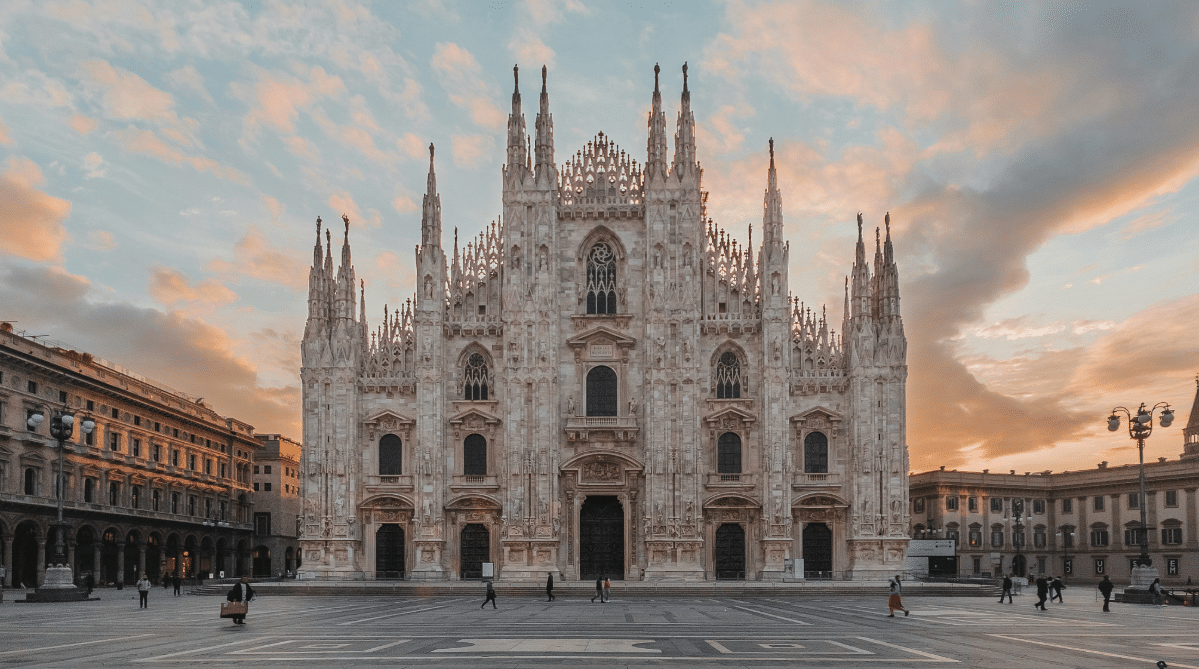 Unsplash
Unsplash
Day 10: Fly Out of Milan
Schedule a red-eye flight to take advantage of everything you can see in Milan. Stop for a cappuccino and pastry in a picturesque café near the Duomo di Milano to start. This magnificent cathedral is one of the largest in the world. Take a guided tour or explore on your own.
Enter the Santa Maria delle Grazie church and take a tour to see Leonardo da Vinci’s “The Last Supper.” It’s a UNESCO World Heritage Site that you must check off your list. Then, visit Sforzesco Castle, which shares its grounds with Parco Sempione, an inviting green space where you can bring a snack and recharge.
End your time in Italy by spending the evening in the Navigli District. Have an aperitivo while walking along the human-made canals, followed by a lovely dinner at any of the fine restaurants. Then, you’re off to the airport.
Pro tip: Stow your baggage at your hotel or a luggage locker to explore more easily.
Italy eSIM: Stay Connected with Airalo
Stay connected during your trip to Italy with an eSIM from Airalo. An eSIM is a tiny SIM that’s embedded in your device and works 100% digitally. You can download an eSIM plan for your destination and instantly connect to a mobile network. There’s no need to find a SIM card vendor, manage multiple SIMs, or worry about roaming fees.
Here are just some of the benefits of using an Airalo eSIM:
- Connect to a mobile network within minutes.
- Choose from flexible local, regional, and global data plans.
- Say goodbye to expensive roaming charges.
- Store multiple eSIM data plans on your device.
You’re all set for your trip to Italy! Head to the Airalo store to browse eSIMs for Italy and 200+ destinations worldwide.

